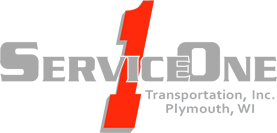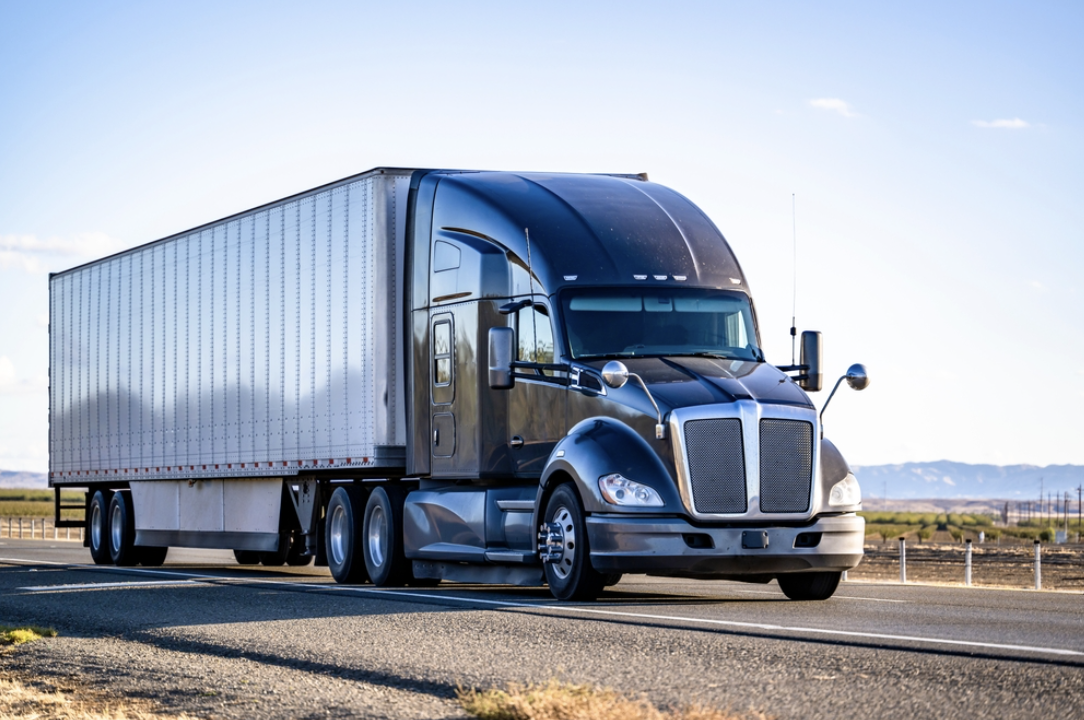Green Bay isn’t just known for its football legends and vibrant community spirit—it’s also home to a thriving trucking industry. If you’ve been thinking about pursuing a career as a truck driver, you might be surprised by how many doors can open in this corner of Wisconsin. Below, we’ll explore why Green Bay is such a strong contender for anyone looking to launch or advance in trucking, what kinds of positions are available, and the steps needed to get rolling toward success. Keep reading to learn how you can get on the road toward a fulfilling and financially rewarding career.
Why Green Bay is a Prime Location for Truck Drivers
Green Bay’s strategic location near major highways and its bustling economy make it a great launching pad for those eager to get behind the wheel. Situated in Northeastern Wisconsin, Green Bay provides easy access to various routes that connect the Midwest to the rest of the country. This connectivity means a broad range of freight opportunities, from agricultural products to consumer goods.
Strong Transportation Network
Highways such as Interstate 41, US 141, and other state routes weave through the region, making it easier to deliver goods efficiently. These roads aren’t just convenient for shipping—local businesses in the paper industry, manufacturing, and food processing also count on truck drivers to move essential cargo. As a result, companies often scout for dependable drivers who know the ins and outs of safe, on-time deliveries.
Supportive Community and Job Market
Green Bay fosters a culture where professional drivers can connect with other industry professionals. Local truck stops, rest areas, and training facilities exist to support drivers throughout their careers. Many residents appreciate the critical role truckers play in keeping store shelves stocked and industries supplied. With consistent demand, it’s less stressful to transition into stable work and find competitive pay packages.
Key Qualifications and Requirements
Before launching a full-time trucking career, it’s crucial to understand the basic qualifications the industry looks for. While you don’t need an advanced degree, there are specific certifications and state regulations you’ll need to meet.
The Importance of a Commercial Driver’s License (CDL)
The cornerstone of a trucking career is the Commercial Driver’s License (CDL). You’ll typically begin with a Class A CDL if you plan to drive vehicles with a gross combination weight rating of 26,001 pounds or more (which is the standard in the long-haul trucking sector). Earning your CDL involves classroom work and behind-the-wheel training. After clocking enough hours of training with accredited instructors, you’ll need to pass both a written exam and a road test to demonstrate your competence.
CDL Training Programs
Plenty of options are available for getting your CDL in Wisconsin. Many community colleges and technical schools offer programs, often completed in just a few weeks of full-time study. Some trucking companies may even sponsor your CDL training in exchange for a commitment to work with them for a certain period. This can be a cost-effective way to start your career if finances are tight.
Clean Driving Record and Background Check
Beyond the CDL, employers tend to prefer drivers who maintain a clean driving record. If you have a history of traffic violations, it might be more difficult to find a position, although not impossible. Companies also often run background checks to ensure candidates are trustworthy, as they’ll be handling expensive cargo and vehicles.
Health and Physical Requirements
Long hours on the road require stamina and focus. A Department of Transportation (DOT) physical exam is mandatory, assessing vision, hearing, blood pressure, and overall physical condition to confirm you can drive safely. Drivers must typically renew this certification every two years (sometimes more frequently, depending on specific health conditions).
Types of Truck Driving Opportunities in Green Bay
Green Bay’s trucking sector isn’t one-size-fits-all. You’ll find several different paths, each offering its own work environment, schedule, and pay structure.
Long-Haul (Over-the-Road) Driving
Long-haul drivers, sometimes called OTR drivers, deliver goods across various states and may be on the road for multiple days or weeks at a time. These positions often offer competitive pay, especially when mileage rates are high, and can include special bonuses for extended routes. While being away from home can be tough, some people find that the adventure of traveling across the country makes it worthwhile.
Regional and Local Routes
If you prefer to stay closer to home, regional and local driving jobs might be more appealing. These roles involve hauling goods within a smaller geographic area, allowing you to spend more nights in your own bed. Local driving is especially valuable for those who have family commitments and need a more predictable schedule. Though the pay might differ from OTR positions, many still find that regional and local routes offer a balanced lifestyle.
Specialized Freight
Green Bay’s diverse industries also create opportunities for specialized freight. Driving a tanker, hauling oversized loads, or transporting refrigerated goods can lead to higher pay rates and niche expertise. Specialized roles often require extra endorsements on your CDL, such as a tanker or hazardous materials (hazmat) endorsement. That additional training can pay off, though, since specialized drivers are in high demand and often receive premium compensation.
Earning Potential and Benefits
Once you’ve secured a CDL and chosen the type of driving that appeals to you, a vital question arises: “How much can I make?” Wages vary based on experience, endorsements, and the type of run, but many new drivers find that the trucking sector provides a clear path to financial growth.
Base Salary and Mileage Pay
Some companies pay by the mile, while others offer hourly or salary-based compensation. Mileage pay tends to encourage efficiency, as the more miles you drive, the more you earn. However, it’s crucial to look at your total benefits package, not just your base pay rate.
Bonuses and Incentives
Many Green Bay trucking companies offer bonuses for safety, on-time deliveries, fuel efficiency, or longevity with the company. Referral bonuses are also common, giving drivers a boost when they recommend qualified applicants who join the team. These perks can significantly increase your overall earnings.
Comprehensive Benefits
Because trucking is a vital profession, many employers provide robust benefits packages that include health insurance, dental coverage, life insurance, and retirement plans. Some may also offer paid time off and reimbursements for ongoing training or additional certifications. It’s a good idea to factor in these benefits when comparing job offers.
Growth and Development in the Trucking Field
Trucking isn’t just a “get a CDL and that’s it” career. You can keep elevating your skills through training, mentorship, and taking on more responsibilities.
Mentorship and On-the-Job Training
Many companies now understand the value of pairing seasoned drivers with newcomers. A mentor can offer practical tips on managing hours-of-service regulations, finding efficient routes, and dealing with breakdowns or tricky driving conditions. This supportive environment helps new drivers feel more confident behind the wheel and can speed up your adjustment to life on the road.
Additional Endorsements and Certifications
With a CDL in hand, you might want to collect endorsements for tank vehicles, hazmat transport, or doubles/triples. These specialized areas often lead to higher wages and more assignment choices. Likewise, some drivers opt to learn advanced safety procedures or electronic log usage in order to handle specific freight.
Moving Into Leadership Roles
Over time, drivers can step into supervisory or managerial roles. Dispatchers, freight coordinators, and safety managers are usually individuals who have proven themselves on the road and want to lend their expertise in a different capacity. Climbing the ladder in a trucking company can increase your earning potential while offering more predictable hours.
Tips for Achieving Success as a Green Bay Truck Driver
Truck driving isn’t an ordinary job—it’s a lifestyle that rewards responsibility and consistent performance. Here are a few ideas to keep you on track:
-
Maintain a Good Driving Record: A history of safe driving will make you a prime candidate for better routes, raises, and promotions.
-
Stay Organized: Whether it’s managing delivery schedules, keeping track of fuel receipts, or remembering your DOT medical exam renewal, organization is key.
-
Plan for Weather Variations: Green Bay winters can be harsh. Preparation can mean the difference between a smooth run and serious complications. Keep essential winter supplies in your rig and learn how to adjust your driving style for icy roads.
-
Look After Your Health: Driving involves long periods of sitting, which can affect your well-being. Consider stretching during breaks, selecting healthier meals, and staying hydrated.
-
Utilize Technology Wisely: Many companies provide electronic logging devices (ELDs) and GPS systems. Learn how these tools streamline your workload, but always keep safe driving at the forefront.
-
Communicate Proactively: Good communication with dispatchers, customers, and fellow drivers helps avoid misunderstandings. If you see a potential issue, reporting it early can avert bigger problems.
Taking the Next Step
If the thought of taking on the open road in a dependable rig piques your interest, Green Bay offers a wealth of opportunities. Earning your CDL, deciding on a type of driving (local, regional, OTR, or specialized), and securing the right job can lead to a stable, rewarding career path. You may find yourself traveling all over the country or staying close to Wisconsin, depending on what suits your lifestyle best.
The trucking industry needs more dedicated, safe, and skillful drivers to meet growing demands. Whether you’re new to driving or looking for a fresh start in your professional life, the Green Bay region has abundant resources to set you up for success. Many local businesses and transportation companies are hiring individuals who want a chance at an in-demand occupation with substantial room for advancement.
It’s never been more practical to move forward in this line of work. Once you’ve chosen the training program that fits your goals, you can secure your CDL, apply for openings in Green Bay that match your preferences, and begin your journey toward a stable and potentially lucrative future on the highway. The key is to stay motivated, keep your record clean, and be open to learning every day on the job.

